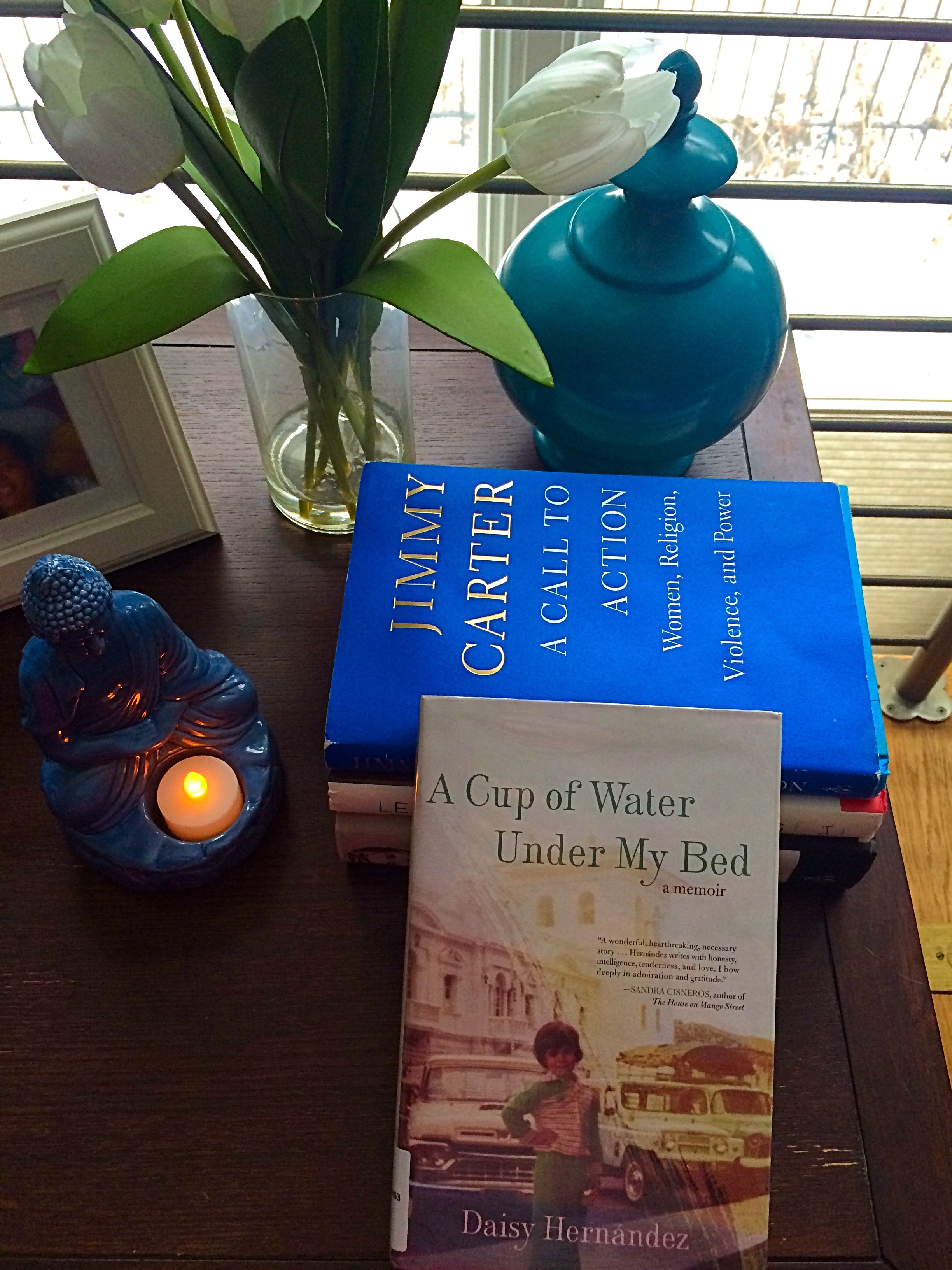Connecting a Cultural Divide, a Book Review
I recently finished reading Cup of Water Under my Bed (CWUB) and I highly recommend it! CWUB is a memoir by Daisy Hernandez, a Latina with a Cuban father and Colombian mother. A New Yorker who became a journalist for the New York Times before moving on to write progressive pieces with a focus on social justice.
I became interested in reading CWUB just by the title alone. I grew up with Mexican culture/traditions, so when I heard, “cup of water under a bed,” I didn’t think of Santeria (which is the context of the title), but rather remembered my mom would cure me from Ojo and place a cup of water (with an egg) under my bed. It’s always so interesting to me how Latino culture is so vast and different, but we can find these nuggets of familiarity between us.
My only critique (if you can call it that because I’m not a professional book reviewer) was that her writing style seemed a little jumpy at the beginning. It did take a second to get used to that style. She’ll mix stories from adulthood with memories from childhood and they aren’t necessarily always in chronological order. The biggest part that caused me to pause was when she describes attending a feminist meeting at college, and seems to suddenly just decide to start dating women. But, later on in the book, she shares a story that makes it clear that she’s always been bisexual, so that helped clarify a lot. Other than that, I really liked the book!
Even though Hernandez’s profession is journalism, I think her experience as a child of Latino parents; who earns a professional degree; and begins working and living much differently than how her parents/family live, is very relatable to most professional Latinas. I think her description of guilt and disconnect and impotence she sometimes felt easily translates to many of our own experiences. Maybe we’re not sitting in a room full of all white New York Times journalists espousing their thoughts on affirmative action, but most of us have sat in very white law school classrooms shocked at commentary made by classmates. I just keep reading portions and thinking: YES!
Hernandez’s story spans growing up in a very poor family, assimilating, succeeding in school, and essentially surpassing most people’s ideas of her potential–not just by graduating high school, but by attending university and earning a prestigious job that propelled her into a much higher income bracket than her parents. Essentially, the American dream, right? She starts interacting with people in power (mostly white people) and struggles with this duality of her life. On the one hand she comes from a very poor, immigrant family that often can’t find work and relies on unemployment, and on the other, she’s living a highly successful, consumeristic lifestyle with colleagues and peers that are on the opposite side of the financial spectrum from her upbringing.
The part that I thought the author did such a wonderful job of describing was the need for her (and a need I totally identified with completely) that pushed her to buy expensive things. Conspicuous consumption, essentially. She gives an example of growing up how her mother and aunts were happy buying 99 cent lipstick, but she wanted the $5 one. There’s very much a pull that she felt (and many of us feel) to look like we belong in these upper socioeconomic levels, and so we are trapped into this thought of buying certain things because somehow those things will make us better. There is a great passage where she discusses how bell hooks never felt this pull to belong to upper middle class society because she was never accepted by that group and therefore never felt a longing to live a consumeristic lifestyle. Hernandez points out that it’s much different when you are accepted because you want to continue to belong. She doesn’t delve into this, but this “belonging” is really a form of power, or at least potential power, and so it makes sense that we wouldn’t want to give that up once we’ve been accepted into this group.
The memoir also describes her path regarding her sexuality; her family and the difficulty in accepting each others differences; her problems with overspending and debt; feminist awakenings; and finally her rejection to be a part of a huge system of power (The New York Times) and instead moves to a smaller magazine that is speaking truth to power and allows her to tell stories about groups of people ignored by the mainstream.
I really recommend the book because it’s refreshing to hear stories like this from other young Latinas, and because I think most of us can find parts where we can relate. She does a great job of describing the tension between her family when she breaks traditions, expectations, and family obligations. Hernandez also did a recent interview with LatinoUSA discussing her book that’s also worth a listen!
Have you read A Cup of Water Under my Bed? What did you think?

